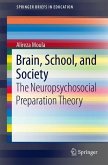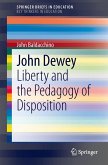This book covers Rudolf Steiner's biography, presented from an educational point of view and also unfolds the different aspects of Steiner's educational thought in Waldorf Education. His point of view is unique in that it relates education to a wide horizon of different contexts, such as social, pedagogical, evolutionary and spiritual aspects. His ideas are philosophical (ethical, epistemological, ontological). However, above all, they are based on spiritual understanding of the human being and the world.
In many ways, they stand in stark contrast to the views that inform present mainstream educational thought and practice. Nevertheless, there are points where Steiner's ideas can find a resonance in more recent educational thought. Steiner was in many ways ahead of his time and his educational ideas are still relevant to many present day educational issues and problems.
In many ways, they stand in stark contrast to the views that inform present mainstream educational thought and practice. Nevertheless, there are points where Steiner's ideas can find a resonance in more recent educational thought. Steiner was in many ways ahead of his time and his educational ideas are still relevant to many present day educational issues and problems.








